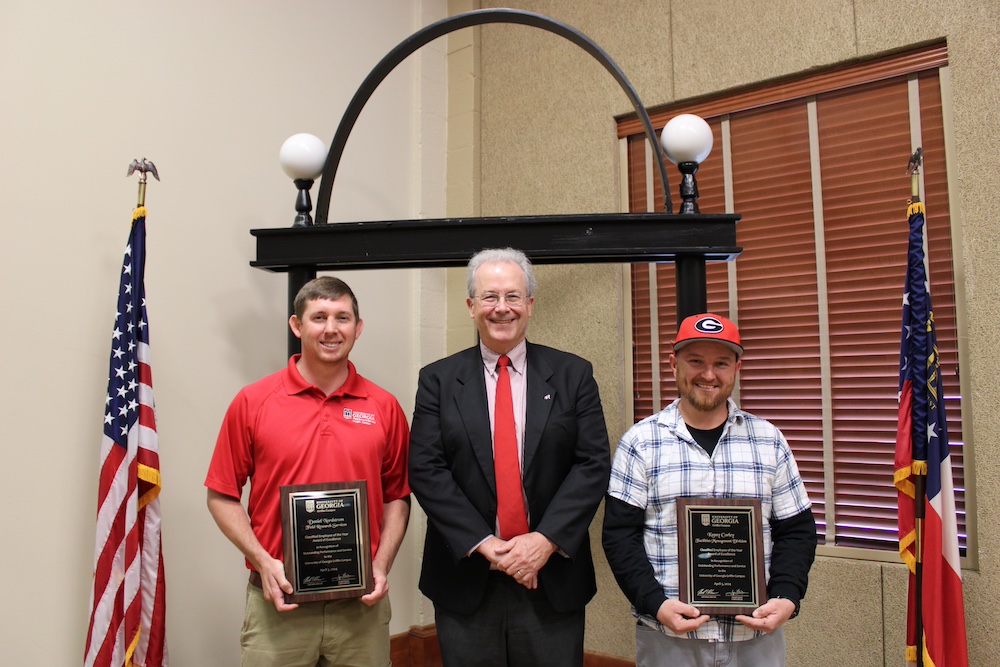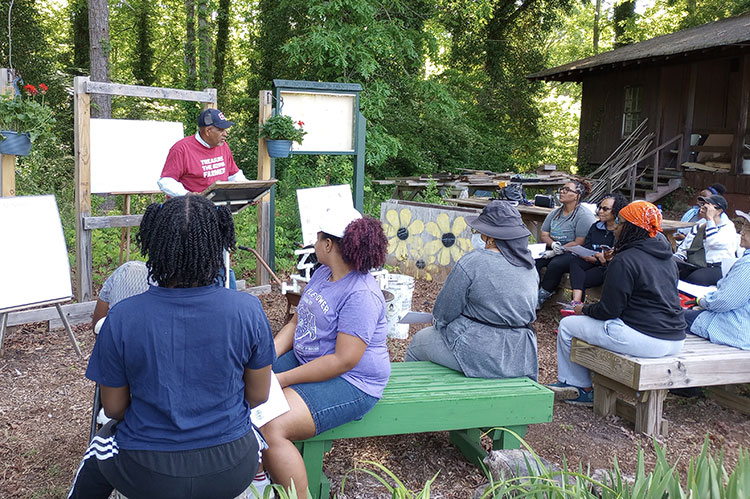University of Georgia
Five years ago, downtown Monticello, Ga., looked different: abandoned storefronts, dusty shelves and empty sidewalks. The town square was well-groomed, but visited mostly by squirrels.
Now on Saturdays from May to October, the Monticello Market Festival on the Square has downtown hopping. And it’s more than fresh produce that’s offered; it is pies and crafts and sauces – and community.
“We’ve found that our market has integrated itself into all facets of Monticello life,” said David Dyer of Monticello, who is interim head of the Georgia Agritourism Association (www.visitgafarms.com) and owner of Garland’s Ridge Farm, a tree farm managed for quail, turkey and deer.
“It’s hard for rural merchants to compete with large chain stores in neighboring counties. So by having an attraction in a downtown area, not only do you build a sense of community, but it helps expand your market area.”
For example, he said, one Saturday, a vendor’s sweet potato and pecan pies caught a restaurant owner’s eyes – and taste buds. The vendor now sells the owner the pies for $10 each. The restaurant owner sells them for $6 a slice in his two Atlanta restaurants.
Another vendor makes wooden duck calls. A national organization now orders 6,000 of them at a time from him, Dyer said.
“Two weeks ago, a lady stopped by just driving through on her way somewhere and sampled one of the vendor’s jellies. Her son is getting married in New England, and she wanted to give a Georgia gift,” he said. “She ordered 600 jars. Those are examples of what can happen.”
Hometown farmers markets have seen a recent boom, said Kent Wolfe, a marketing analyst with the University of Georgia Center for Agribusiness and Economic Development. Georgia now has 108 markets statewide.
Something called agritourism
When people come into a town, whether for a theme park or a farmers market, it’s called tourism. And when farm is added, it results in activities that range from pick-your-own strawberry patches, quail-hunting operations and shrimp boat tours to roadside vegetable stands.
“A recent study found that 17 percent of the population is diehard local-grown consumers,” Wolfe said. “That’s a pretty significant number of people.”
Nature-based tourism brought $50.9 million to the state’s economy in 2008. Ag-based tourism added another $27.3 million, according to the UGA Georgia Farm Gate Value Report. Successful agritourism ventures are statewide, from Thomas County in southwest Georgia to Habersham County in the northeast corner.
Wolfe works with agritourism businesses across Georgia. He, Dyer and others are now holding agritourism workshop, where participants can create their own Web sites and learn more about marketing, finances, official road signs, insurance and zoning. For more information about the workshops, call (706) 583-0347 or visit http://www.caes.uga.edu/UNIT/ATHENS/events/events.html.
In most towns, the local government decides whether a property is zoned commercial or agricultural. The difference is huge in terms of how much tax someone has to pay. Wolfe wants to help agribusinesses like these understand these issues.
But it’s not just business help Wolf is offering, he and his colleagues are promoting agritourism.
Worldwide market
In 2007, CAED joined the University of Illinois Extension and other universities in a nationwide attempt to market and link food-related businesses. The result was MarketMaker (http://www.marketmaker.uga.edu), an interactive Web site with one of the most extensive searchable collections of food-industry data in the country.
“One of the big things hindering local food is lack of a distribution system,” Wolfe said.
All along the food supply chain, from peach packing companies to restaurants, people want to know where they can find local food, he said. In August, MarketMaker had 56,000 hits.
National MarketMaker now has 12 states participating, including recent additions Colorado, South Carolina and Washington, D.C.
Search under farmers markets on MarketMaker, and you’ll find the Monticello Market Festival on the Square, along with contact and general information. For the producers involved, showing up on a Web site or at the market can pay off big.
(Stephanie Schupska is a news editor with the University of Georgia College of Agricultural and Environmental Sciences.)







